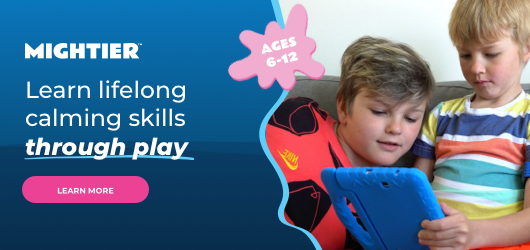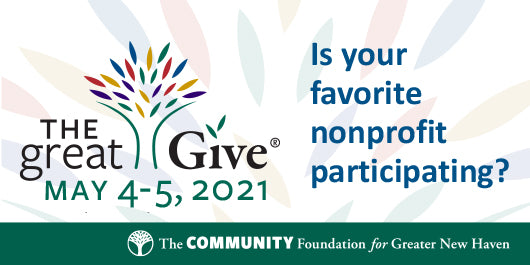The COVID-19 health crisis has underscored many of the disparities in our public health system. It has also revealed what works, and few things have worked better than New Haven’s Fair Haven Community Health Care (FHCHC), a fifty-year-old veteran in the fight to address these issues and provide healthcare to all.
Neighborhood health centers were born in the social movements of the 1960s and aimed to increase equity and access in medicine, concerns that sound all too familiar today. FHCHC was started in 1971 as a twice-a-week clinic in a local school. Today, it is a thriving community-based health nonprofit caring for 18,000 people at multiple locations including a network of school clinics, where, according to the mission statement, it works to “improve the health and social well-being of the communities we serve through equitable, high quality, patient centered care that is culturally responsive.” Like other such centers, it provides a medical home for underserved patients, creatively incorporating social support into primary care and preventive medicine.
sponsored by
These strategies have made for healthier communities. And in a challenging pandemic, they’re just what the doctor ordered. After the reality of COVID-19 hit in the spring of 2020, FHCHC quickly moved to develop testing capacity for anyone in the community. In May, before rolling its testing program out to the public, FHCHC teamed up with the State Department of Public Health and Quest Diagnostics to test all the residents and staff at Mary Wade Home, the first onsite testing program at any Connecticut nursing home. This work evolved into a public testing program outside the center’s headquarters, at 374 Grand Avenue. Eventually, the center enlisted the Army National Guard to help meet the demand for tests, and when fall weather made the center’s parking lot tent too chilly, the Greater New Haven Water Pollution Authority offered one of their warehouse facilities.
Through it all, FHCHC’s testing has been free and open to anyone, symptomatic or not, but it’s been especially important for Fair Haven residents, who are predominantly working-class Hispanic or Latino and often perform essential work that brings them into contact with the virus. According to Dr. Everett Lamm, FHCHC’s clinical director, the positive test rate in the neighborhood has been two to three times that of the state. Still, for FHCHC, it’s not just about immediate physical health. When I called to make a testing appointment last summer, the scheduler inquired about my food and housing security, ready to offer assistance.
sponsored by
Before the pandemic, reducing barriers meant providing healthcare in school-based clinics and neighborhood centers. Now, FHCHC needs to reach patients in their homes. In addition to using telehealth appointments, Dr. Madhuri Sharma, the center’s director of telemedicine, started a remote patient monitoring project last summer. She and her team purchased blood pressure monitors, oxygen saturation monitors and other digital equipment, then gave these devices to patients with ongoing health problems such as congestive heart failure and chronic obstructive pulmonary disease. The equipment includes transmitters that plug into the wall, and, amazingly, no internet connection is needed to send the patients’ vital signs directly to FHCHC. “We’ve been able to keep [patients] safe in their homes and provide them care long-distance… which is incredibly novel and cutting-edge,” Dr. Lamm reports.
As for vaccinations, doses started arriving at 374 Grand Avenue on December 23, and FHCHC was ready. Beginning at 6 a.m. the next morning, staff vaccinations began. As community members became eligible, staff turned the newly renovated lobby into an area where newly vaccinated patients could wait out their 15- to 30-minute observation period. When it came time to vaccinate public school employees, FHCHC volunteered to help—but they needed a bigger vaccination site. Working with the schools, the mayor’s office and the New Haven Health Department, a solution was found within days. Wilbur Cross High School, familiar as the main public high school for Fair Haven students, was the natural choice. Within a week, 300 school personnel had received their first shot there. The site continues to vaccinate around 500 people a day, including school staff and New Haven residents.
Not surprisingly, when an organization like FHCHC gives so much to a community, the community gives back. On a recent Saturday, a pioneering, volunteer-organized “Vaccinate Fair Haven” event brought together more than 200 community members, staff and local politicians for what one staffer called a “get out the vax” event. Hoping to knock on all the 5,000-plus doors in Fair Haven, pairs of volunteers canvassed the neighborhood to educate residents about the vaccine. They offered eligible individuals appointments the following week at Wilbur Cross, identified any homebound individuals who need vaccines delivered and took phone numbers to follow up with those who aren’t yet eligible. Thanks to a partnership with M7 Taxi, transportation is available for anyone who needs it.
Before and during the pandemic, Fair Haven Community Health Care has provided a model for other organizations to follow. Karen DuBois-Walton, president of the Housing Authority of New Haven and a Vaccinate New Haven organizer, neatly characterizes the work: FHCHC shows us “what health equity in action looks like.”
Fair Haven Community Health Care
HQ: 374 Grand Ave, New Haven (map)
HQ Hours: Mon 8am-5pm, Tues 8am-7pm, Wed 9:30am-5pm, Thurs 8am-7pm, Fri 8am-5pm, Sat 8am-12:30pm
(203) 777-7411 | info@fhchc.org
www.fhchc.org
Written and photographed by Stephanie Wratten. Image 1 features medical assistant and patient screener Andrea Torres. Image 2 features, from left, Americorps member Veronica Boratyn and Dr. Madhuri Sharma.










